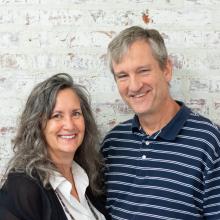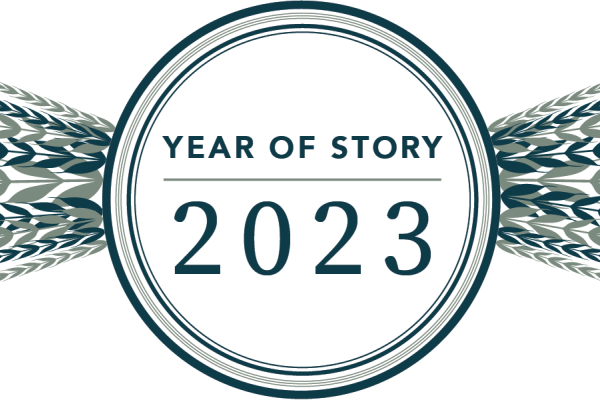Category: Goals
Letting God “Increase” Our Time
June 26, 2025
by Kurtis Eby
Have you ever thought about how time tends to be experienced uniquely, varying by individual? A child perceives time standing still while on a road trip, but an artist caught in their work blinks, and hours have passed. Though our interactions with time vary significantly, time is uniform at its core. 1 Chronicles 29:11 reminds us that everything in the heavens and the earth is the Lord’s. In Genesis 1:14-19, God created the sun, moon, day, and night – we know that time is from the Lord, too!
He invites us to number our days, knowing that time on this earth is fleeting. But why do we experience time so differently? We tend to view time as being spent rather than being invested. This is understandable, as we live within a 24-hour system that is effective for the use of commerce and community, but what if we lived like God truly was the author of time?
Believing in God for additional resources is commonplace in Christian culture. Time and time again, He proves Himself faithful to supply all of our needs. What other areas might He be inviting us to rely on Him for an increase? What could it mean if we believed in Him for additional time, beyond just talent and treasure? What if He allowed us more effective time? Though this blog wasn’t in our plans, we believe that our theme this year, Year of Increase, relates closely to time. We trust that God can help us invest and redeem time for His glory.
Since God created time, He is not bound by it. In Joshua 10, God caused the sun to stand still. He shifted time to allow for His kingdom to advance. This story reminds us of the truth about God – that He is the author and creator of time. Rather than viewing time as scarce and limiting, we can trust that He has the authority to multiply and increase time.
Consider how partnering with Him in this area could influence our approach to time. What investments do we make in time? When we know what He has given to us and walk in authority in that, I believe He can redeem time. When we are plugged into the source of time, we lack nothing. If we take a moment to analyze our time investment, our core values, and our resources, we just might begin to see how He would have us shift our investments.
I’ve found a simple question that can aid in an evaluation of your time: What does the way that I spend my time tell me about what I love? Take a moment to write out your schedule for the week. What is on your to-do list? Is there room to adjust if a relational opportunity with a neighbor or friend arises? What captures your heart and mind in your spare time? When we say we love our neighbor, but every day of the week is filled to the brim with work, sports games, and house chores, do we really love our neighbor? Or might our time suggest that we love something else a little bit more?
Whether it means canceling plans to accept a service opportunity, designating time each month to give to the church, or something else entirely, we invite you to join us in asking God how our time can be invested. What a joy it is to be able to partner with God to redeem and see an increase in our time.
And please – before you get to feeling that time is just too limited – remember that you, yes YOU, have access to the creator of time!
Year of Increase – Creating a Vision for our Resources
February 10, 2025
by Ron Bare
Have you ever met a visionary? Maybe you’re one yourself. I’m talking about that person who seems to have endless ideas, always sees the big picture, and is always trying to fit 100 pounds into a 50-pound bag. Though our visionary friends do have some drawbacks, I’m convinced they bring something to the table that each of us can learn from.
This valuable trait that visionaries have is simply having a vision and being able to look beyond the current moment. Here at Bare, we often refer to our vision as “Beyond Abundance.” When we look down the road 5, 20, or 50 years into the future, what we hope for our clients is not that they’ve become rich, but that they’ve lived a rich and full life. We pray that our clients have been blessed beyond their basic needs, and that they have served others with their abundance. We also pray that our clients have taken a good, long look at their resources and considered how they might bring an increase to them for the good of others.
How can we ensure that at the end of our life, we’ve done this well? Investing and growing our finances, time, and resources is no small feat, but it is worth it! Ephesians 3:20 and 2 Corinthians 9 both remind us of this reality – that when we sow, we reap. As you take a look at your life, what has God placed in your hands? How can you invest and grow the resources that God has given to you? What kind of impact can your resources have on others?
We can talk about these principles all day, but it’s crucial to take time to nail down what this actually looks like in your life. We want to intentionally create a vision for our resources, and vision first begins with inventory. To aid in this process, we’ve crafted the Beyond Abundance Inventory Sheet. This tool helps us think about exactly what resources God has given to us and how we can bring an increase to them for His glory.
The first resource on the inventory sheet is our financial resources. Whether a salary, an inheritance, or ownership of a business, financial resources are easy to see. After we know what financial resources we have, we can consider giving, investing, or planning how our business can serve others. These resources are so tangible, but certainly not all there is.
Intellectual resources might include a high school or college education. They might include a specific skill that you are trained in, or unique experience that you have. They may even include financial literacy. These are the kinds of gifts that are important to continue investing in, and as learning continues, are important to pass on to others through teaching and apprenticeship.
Relational or social resources come in the form of people. You’ve heard it said before: who you know is often more important than what you know. Many of you know this principle to be true because you’ve lived it. One of my favorite ways to watch networks serve the community is through banding together to solve a problem. Often, one person or organization does not have all of the solutions to a problem, but when networks work together, things get done. How can you work with others to solve big problems?
We also believe spiritual resources are critical. It is such a gift to be able to live in a time and place in history where spiritual resources are easy to access – whether a church, pastor, or our Bible. Going one step further and inviting others to join in is where true transformation happens.
The last category on the Beyond Abundance Inventory Sheet is physical resources. This includes those tangible things – housing, food, and clothing. Though many of us are blessed, many of our neighbors are under-resourced in this area. How can we use our physical resources to come alongside them? Whether buying properties and renting them at fair rates or donating food to food banks, there are plenty of ways to serve.
At Bare, we believe that stewardship and generosity are important. That’s why our impact statement highlights these two ideas: through intentional stewardship and extravagant generosity, we help generous people shift the culture and change the world for the glory of God. Would you join us on this mission? We’d love to have you!
5 Key Principles to Help Maximize Impact
December 5, 2024By Ron Bare

Many of you share our passion for maximizing our impact on this earth by using the gifts and resources that God has entrusted to us. Why do we choose to do this? For His glory, so that we can play a part in accomplishing His purpose and plans!
Whether you’re ready or not, 2025 is fast approaching, and we believe there are five key principles that can help you maximize your influence and impact in the new year!
First, remind yourself regularly that God owns all of your resources. God has been gracious to each of us by providing what we have. Just as car manufacturers define how their cars function–designing each part and assembling the car–the Creator of all things defines the purpose and use of the resources that He gives. He has entrusted resources to us, empowering us to honor Him in how we manage them. Understanding that God is the owner of our resources changes everything about how we handle our personal and business finances.
Second, learn the secret of contentment! Paul talks about learning this secret in Philippians 4. This passage reminds us that contentment doesn’t come naturally to us, because you don’t have to learn something that’s innate! We have found a few practices that have helped us learn this secret. We encourage you to take a close look at your finances and define how much is enough. How much do you need to live on annually? Don’t be afraid to throw some fun things in that budget – God does have an interest in our enjoyment, and sometimes that requires money. When you’ve defined enough, draw a finish line. Determine the amount you will accumulate, and walk in confidence, knowing that it will suffice. If you happen to accumulate more, consider giving the excess away!
Third, give extravagantly! I could talk about this principle forever. It can be a difficult one to implement but is incredibly valuable. 2 Corinthians 9 offers helpful insights on generosity and we encourage you to spend time reading through it. We truly believe our God is a God of abundance and provides us with what we need to be generous. If God is the true owner of our resources, let us show gratitude for all He has given and give back to Him! All that He asks of us is to determine how much to give, and then to give with a joyful heart.
Fourth, create a vision for how to allocate your resources. We read in Proverbs 29:18 that without vision, people perish. Take some time to look around your community, your church, your neighborhood, and your family, and ask why God may have given you the influence and wealth that He has. How does He intend for you to use your resources? What has He laid on your heart? Pay attention to those passions, and chase after them.
Finally, align your finances to this vision. Once you have an idea of how God might have you use your resources, begin to make a plan for it. Consider how you can collaborate with other organizations or families. How can you be generous with your time and money? Can your church, neighbors, or family benefit from what you have been given? Continue to pray and be open to guidance the Lord might provide for you.
What is your vision? Why has the Lord blessed you with the resources you have, whether it is an abundance of wealth or your time, talents or influence? Who in your community needs care? If you’re not sure, take some time to pray. The Lord hears our prayers; rest assured in that. We look forward to walking alongside you as you seek to serve those around you and impact the world for good in 2025!
Leaving a Family Legacy of Generosity
June 7, 2024by Ron Bare
My parents taught me to be generous. Throughout my childhood they instilled many values, both in speech and in action – but it was the “action” values that really remained. I don’t remember whether our house was always clean or whether my mom’s meals were always perfectly cooked. But I do remember that she was always feeding not only me, but all of my friends too. I remember my father faithfully tithing. My mom was also generous with her time, volunteering at church and a local thrift shop. I learned by watching her that generosity can be expressed in many forms and that family giving is hugely impactful.

I believe many of us would love to leave legacies of a strong work ethic or faithfully tithing, similar to my parents. We all have a deep desire to impact those around us. So how do we do it?
Last month, we talked about six buckets of long-term goals. We focused on the giving bucket and about what it means to give out of our assets and accumulation. This takes intentional planning and a generous heart.
This month, we’re focused on the family goals bucket. Many of us have a desire within our hearts to support our children or grandchildren. This support comes in different forms depending on our values and lifestyle. We often begin with goals of helping our children financially. These goals typically involve helping with their education, first home, or leaving an inheritance.
In the same way that my parents taught me the many ways to be generous, I’d invite you to consider the many ways to handle family goals. Offering college support or leaving an inheritance aren’t the only ways to support your family. The values and wisdom you instill in your children and grandchildren around finances can be even more valuable than the finances themselves. One of my mentors, Ron Blue, stresses the importance of this concept in a quote he has been known to say, ” Pass on wisdom before wealth.” Your children and grandchildren will continue to think of you after you’re gone. What do you hope comes to their mind? What did they see you model? How did you talk to them about money?
Maybe there are patterns you can establish, like giving first before paying your bills, that your children will pick up on. It could be valuable to also consider a fund that could be started to help fund the dreams and goals of the next generation, including helping them start a business, buy a home or even invest into their giving goals. Consider how your life experiences can be valuable to share. Simply inviting your children into some of your financial conversations can be invaluable. You’ve learned lessons through your successes and failures that have the potential to be a great resource to the next generation.
Part of the reason we encourage thinking about more than just giving financially to our family is because we know that without the values piece, sometimes more harm than good can happen. Instead of instilling a mindset of perseverance, sacrifice or hard work, financial blessings can create entitlement or dependence without wisdom. At some point, you may have done “enough” financially for your family. This has to be a real consideration. You can still serve your family even if the answer for right now is ‘no.’ I have seen that entitlement and dependence are less likely to happen when we’re successful with passing on wisdom and values.
I have been blessed to have a wonderful mother and father. Not because our home was always perfect. Simply because I was taught important lessons about generosity, especially about finances. What are your children and grandchildren learning from you? Family goals are so valuable, yet can be approached in many ways. We’d love to hear about how you and your family creatively approach your family goals.
Join us next month for a conversation about our capital assets and investments and how they can shift the culture and influence the world for good.
Implementing Faithful Living with Intentionality
April 1, 2024by Ron Bare
It’s easy to talk the talk. But when it comes to walking the walk, that’s a little more difficult, isn’t it? We’ve all seen this in action. This is why it’s easy to say that we will be more mindful of our budget, but when we start to smell that coffee, the budget goes out the window. It’s why saying that we’re starting a diet is easy, but actually following through with the restrictions it brings is so difficult.
At Bare, we understand the importance of both talking about faithfulness and following through with it! We know it takes planning and intentionality to make this happen, and we want to equip you and your family with resources to be faithful.
But what does faithfulness mean? A simple google search shows ‘faithful’ to mean steadfast, or true to the facts. As we focus on our “Year of Faithfulness”, we’re praying that each staff member and client comes to understand faithfulness in a deeper manner and chooses to live that out personally. So far this year, we’ve defined faithfulness and shared some practical tips around faithful living. This month, we want to give you strategies to intentionally implement these principles.
These principles come from my learning over the last 30 years in financial advising combined with the study of God’s Word. His Word is steadfast and true; it is faithful!
I want to begin with the most important financial decision you get to make: deciding how much to give. I typically start by considering a 10% tithe. This is a biblical principle and I’ve found it to be a helpful starting point. From there, consider how you can be more generous each year. Set intentional generosity goals and work toward them. And remember, generosity is an overflow of the heart!
Second, consider defining ‘enough.’ Personally, I’ve set a budget that includes both necessary expenses and fun expenses, like traveling, eating out, and our family’s hobbies. This budget gives me an idea of just how much is enough. It protects against the danger of hoarding. Without this guardrail, we will all keep chasing more money, more traveling, more new cars, more, more, more.
Finally, I’d encourage you to set financial goals and invest with a specific personal goal in mind. This will help you determine how much to accumulate. Consider whether your investment decisions are in line with the personal goals you’ve set for yourself. What is needed to grow your business and make a bigger impact? Are you moving closer to or further from that? What are your retirement goals? What are your family goals? Consider your future goals and what decisions might need to be made now to make those things possible later.
Defining ‘enough’ for you and your family will be critical in this whole process. Once you are confident in having accumulated ‘enough’ to meet your financial goals, there are new things to consider! That stage of life is a beautiful time to increase your giving and invest capital in order to shift the culture and change the world for the glory of God. Stay tuned for next month’s blog as we will talk in more detail about this.
None of us can do this on our own. We each need people to walk alongside us as we make critical financial decisions and aim to glorify the Lord with what he has given to us.
Here at Bare, we’d love to walk with you on this journey. As we walk you through a holistic, biblical financial planning process, we will equip you with tools and resources to help guide your way. We’re here for the long haul.
If you’re interested in specific tools for living a God-honoring lifestyle, planning for kingdom giving, or saving and investing, reach out at barewealthadvisors.com. We’d love to connect with you and send these resources to you.
Focusing on Faithfulness in 2024
January 25, 2024by Ron Bare
I learned all about hard work growing up on a farm. I understood that the small,
unglamorous jobs had to be done. Yet this didn’t make my first job off the farm much easier. I
was working at a local lumber yard, and my job was to catch wood as it came through the
saw. Exciting, right? One day, my supervisor asked for someone to work outside to unload a
huge truck full of wood, and you better believe I was quick to volunteer! When I was done, no
one was around, so I went to find my supervisor to let him know. He was baffled. It was a
project he thought would take all day, and it had been done in just a few hours. He promoted
me on the spot, and I said goodbye to my lumber-catching role.
I was trusted with catching wood, and then I was trusted with unloading a truck, and
then I was trusted with even more responsibility. As I continued to prove faithful, I was
entrusted with more. And I believe this principle stands true spiritually as well. As Christians,
we are called to be faithful with what God has given us.
Jesus illustrates faithfulness in the parable of the talents – many of you have likely
heard this story found in Matthew 25. In this story, the master left town and entrusted his
possessions to three servants. Two servants invested what they had been given, making
double what they had received by the time the master returned. One servant buried what he
was given, fearful that he may lose it. The master was pleased with both servants who had
multiplied what they’d been given, and displeased with the other.
In this parable, we see the master, who represents Jesus, giving servants talents. After
he returns, he is pleased with those who have multiplied what he left them with. It all
belonged to him in the end; the servants were just stewarding what had been given to them.
Scriptures like Psalm 24:1 remind us of this very reality. All we have is God’s. And all of
these things we’ve been blessed with – finances, family, time, resources, etc. – we’re meant to
manage them in a way that honors Him.
What a tall task. And don’t overlook the fact that many temptations will arise,
encouraging you not to be faithful with your resources, and most of these dress themselves as
fear. We each have fears, especially when it comes to managing money. If I give some away,
will I have enough? What will others think of my financial decisions? Questions like these
will come from everywhere – culture, others, the enemy, and even from ourselves. We must
decide ahead of time that when we feel fearful, we will still choose to be faithful.
And when we choose to be faithful, we might also be led to ask what things God is
asking us to be faithful with. What does this really look like? First, God gives us time. How do
you spend your time? If you examine your time, what can it tell you about what you value?
Second, He gives us talents. What are you doing with the gifts and abilities God has given you?
Are you serving others with the specific giftings you have? Are you pointing back to God when
others praise you for these giftings? Third, He gives us treasure. How does your financial
management point to God?
When we are faithful with the little that He gives us, He entrusts us with more.
Faithfulness is not for the faint of heart. It demands that you recognize God as the
owner of everything you have. Once you acknowledge that, how much easier it is to be
faithful! God’s gifts to each of us in the form of time, talents, and treasure are unbelievable.
Let us thank Him for these gifts through our acts of faithfulness.
This year at Bare, we’ll be focusing on the year of faithfulness. As we provide
excellent wealth management grounded in Biblical wisdom, we have developed resources to
share with you that will help you identify and focus on key areas to grow in faithfulness. We
can’t wait to meet with you and talk about what faithfulness looks like.
My Top 20 Investing Principles
October 2, 2023by Ron Bare
What could your future look like if you invested well? How could you bless your families, coworkers, or community? Over the years, I have gathered 20 principles that guide our investment strategy, and I’d love to share them with you!
- God is the owner and I am the steward. What do you own that God hasn’t blessed you with? He owns everything we have, which should encourage us to steward and invest it wisely and generously.
- Learn the secret of being content. Contentment drives away the continual need for more. See Phil. 4:12, Heb. 13:5
- Passing on wisdom is better than passing on wealth. Wealth doesn’t last. Wisdom does. Wisdom gets passed on and on, yet wealth vanishes with one decision or circumstance.
- Live generously. God blesses you so you can bless others. Plus, do you know any unhappy generous people? No? Me neither!
- Build margin into your time and money. Time margin allows you to serve, volunteer, and mentor. Financial margin allows you to invest, donate, and have enough when things go badly.
- Borrow cautiously and repay debts quickly. Repaying debts gives you financial freedom to invest, donate, or save for your kids and grandkids.
- Save 10-15% of your income. Saving helps you prepare for unexpected opportunities or crises. This is a practical way to build financial margin into your life!
- Own companies (mutual funds, ETF’s, and individual securities) and real estate. Once you’re an owner, hold these investments long-term.
- If it seems too good to be true, it is! If you’re skeptical or suspicious, seek wisdom from trusted advisors!
- Don’t blindly follow the crowd. Trends are temporary and will fade. The opposite of the crowd is often best!
- Don’t make financial decisions primarily to reduce taxes. Tax reduction is a great benefit. However, this shouldn’t be the driving force for financial decisions.
- Hold unwavering faith in the future. This is not for the faint of heart! Don’t become pessimistic in investing, rather trust companies will prosper and trends will continue upward in the long term.
- Diversify, diversify, diversify! Ecclesiastes 11 encourages us to invest in many different ventures, as we can not predict the future nor what will succeed.
- Invest within the context of your financial plan, goals, and values. Use your plan, goals, and values as a guide for where, when, and how much to invest.
- Be careful of the words “this time is different. ”The truth is, it’s probably not. Look for, study, and learn from patterns in the financial world!
- Build a trusted team of advisors. “Without counsel plans fail, but with many advisers they succeed,” says Proverbs 15:22. Who are your advisors? Where do you go for wisdom?
- Don’t waste time predicting what the markets will do in the short term. No one knows what they will do in the short term! Not you, not the professionals, not internet opinion articles, no one! Don’t waste your time.
- The best time to start investing is today! Don’t wait for the perfect time.
- Be careful with gold (perhaps 3-5% of your portfolio). Usually gold is sold out of fear of potential catastrophes in the world. Personally, the gold I buy is jewelry for my wife so we can enjoy it while we hold it!
- Never make an emotional financial decision. Emotions are good, but when it comes to finances, lean on wisdom, experiences, and your advisors.
These principles can’t promise a life of perfection and wealth. But they can promise to be a good starting point when learning to invest well. If you’re interested in talking more about investing, give us a call!
Formula for IMPACT – part two
September 5, 2023by Ron Bare
Alan and Katherine Barnhart gave away their company. They had spent years working on building a strong company and growing their sales but gave it all away in the end. “God is not impressed with the commas and zeroes,” Alan said. “We’re not giving away anything that God hasn’t given us.”

They were confident knowing that God owned their resources and that they had defined enough. Intentional future planning gave them the freedom to make such a generous decision.
Defining enough is an important step in recognizing that God owns everything that we have, and that endless accumulation is not what we were created for. Let us instead use our resources to join in God’s mission, spreading the Gospel through our generosity toward others. This is easier said than done, but there are six steps that we believe will help you define enough.
- First, add up all your monthly expenses. This includes your mortgage, utilities, transportation, groceries, etc. Providing for your family is good and right, and requires planning.
- Second, define your wants and enjoyments. This might include vacations, date nights, eating out, entertainment, etc. It’s important to enjoy life and spend time doing things you love!
- Third, come up with a total annual spending/living goal. Once your needs and wants are defined, you can plan for both your living expenses and the things you enjoy.
- Fourth, define how much you will need to accumulate to meet this goal of ‘enough.’ We would love to talk with you about this at Bare. This will cover what it looks like to work, save, and invest in order to have enough and then move forward to give in generous ways.
- Fifth, pay off your debts! This is a crucial part of being financially free. When debts are not hanging over your head, you are free to move forward with saving, investing, and giving.
- Finally, build a base giving goal into your financial plan and try to expand this giving each year. 2 Corinthians 8:7 says, “But since you excel in everything—in faith, in speech, in knowledge, in complete earnestness and in the love we have kindled in you—see that you also excel in this grace of giving” (NIV). How can you excel at giving? We encourage you to set an annual giving goal and then plan to expand that goal each year!
We’ve seen a variety of creative giving over the years in our clients’ lives. We’ve seen clients give the growth of their portfolio away, give their business to charity, and others have given real estate away. How can you be generous with the things God has given to you? We’d love to help you talk through what this could look like for you.
Alan and Katherine are just one example of someone who is generous with what God has given them. It’s such a great gift to the people they interact with and the communities they influence. It’s honoring to God as they remember the one who has given them all that they have.
To learn more about Alan and Katherine’s story, watch this video.
Formula for IMPACT – part one
August 2, 2023by Ron Bare
Regret stings. It leaves a bitter taste in your mouth. You say something to your spouse that you really didn’t mean, you make a choice you wish you hadn’t, or maybe you let fear stand in the way of what could’ve been a life-changing opportunity. I believe each of us want to avoid it as much as possible.
I certainly don’t want to get to the end of my life and wish I had done more with what God has graciously put in my hands. Yet we know that our default as humans is to think of ourselves before others, spend on ourselves before being generous, and place security for ourselves as the highest priority.
As humans, we often choose to be selfish rather than being generous with what God has given us. We know this is true of each of us yet none of us are proud of it. As we consider how to be more generous and live a life of impact, we have found three key principles to live by.
Start with capturing your story. This allows your wisdom and knowledge to be passed on to the next generation, so they don’t have to learn things the hard way like you did (at least in some areas!) Financial principles, giving guidelines, spiritual principles, and ideas about work have been ingrained in each of us. We’d love to help you put words to some of these things, capturing them so that they can empower the next generation.
Next, define “what is enough” and “learn the secret of being content.” Defining what is enough is difficult but important as you plan for your family’s future. Once ‘enough’ is defined, you must “learn” to be content with it. Learning, as you know, is a process! Learning to become content allows you to be freed from the love of money. You will be reminded of who truly owns your money and resources. Paul talks about this in Philippians 4:12 when he says, “I have learned the secret of being content in any and every situation, whether well fed or hungry, whether living in plenty or in want” (NIV). Contentment allows each of us to give cheerfully to others rather than continuing to store up for ourselves. Our natural tendencies would be to raise our standard of living as we accumulate more – the principle of learning contentment helps us as we establish a personal financial finish line.
Finally, maximize your impact. We like to think about three things in this area – giving generously, increasing your resources for God, and impacting generations to come. 2 Corinthians talks about deciding what you are going to give and then giving cheerfully. God has gifted you with money and resources so that you can bless others. Matthew 25 talks about working and investing your resources, not so that you can build yourself a bigger life, but so that you have more available capital to invest and use for impact. Finally, think about impacting your grandchildren and great grandchildren (or those in the next generation that are special to you!) What can you do now that can impact their view of stewardship and generosity?
No one wants to live a life they regret. At Bare, we believe that capturing your story, defining and being content with enough, and thinking practically about maximizing your impact will help you live a life that impacts generations to come. In our Year of Story, we’re focused on these things in a new way. We’ve been refreshed by the power of each of our stories and would love to help you capture yours.
Part two of this blog will come out in September. We’ll be talking about what it looks like to define ‘enough,’ and the freedom that defining enough brings!
Life on Purpose
July 3, 2023by Ron Bare

We all want the things we do to have purpose. As a kid, we want to have purpose in the sports we play – why do we play? How do we win? That kid turns into a teenager who wants to have purpose in their future – how do I get where I want to be? Do I need more schooling? That teenager turns into the adult who wants to have purpose in their family and their career – am I intentional with these things? How do I balance my marriage and work well?
These questions don’t end when you hit retirement. We know retirement brings big questions around how much is enough and how we might plan for it. But at Bare, we know that planning for retirement is more than just a financial conversation. We know that it’s also a consideration of what kind of purpose you want your later years to have and what kind of legacy you want to leave.
A study done in the U.S. found that the most productive stage in life is between the ages of 60-70. It found that the second most productive stage in life is between the ages of 70-801. This means that the typical American has the most productive, impactful years of their life in their retirement years!
While this may sound surprising, we know that retirees have more time to be generous with. Time spent in retirement can be so impactful. Whether you choose to volunteer with a local organization, spend time with your family, or share the wisdom you have gained with the next generation, your time can be an invaluable gift to those around you.
Luke 12 talks about this concept of managing our time and resources well. This passage, called the Parable of the Rich Fool, talks about a rich man who builds a large barn to store his crops in. He then chooses to “take life easy, eat, drink, and be merry” (NIV). Jesus condemns this choice. In fact, he says, “You fool! This very night your life will be demanded from you. Then who will get what you have prepared for yourself? This is how it will be with whoever stores up things for themselves but is not rich toward God” (NIV).
Jesus is reminding us here of the importance of being rich toward God – giving our energy, time, and resources toward the things that he cares about. If we can apply this lesson to our retirement years, we can be incredibly productive and impactful.
As you look toward retirement, ask yourself a few questions.
- What strengths do I have that I can use to serve others?
- How can I share my story in a way that impacts the next generation?
- How can I use my time, talent, and treasure in coordination with each other to make an impact on my community?
Bare Wealth Advisors walks alongside you as you process these questions and more. We craft a wealth management plan grounded in Biblical wisdom that is unique to you and your situation and the impact you want to make. In addition, 2023 is our “Year of Story”.” We’re helping you capture your story. What lessons have you learned? What things have shaped you? We’re interested in the lifelong perspective. We want to see our world impacted for the better and we know you have a lot to bring to the table through your story. Come talk with us – we’ll be there as you continue to seek wisdom while preparing for retirement!
